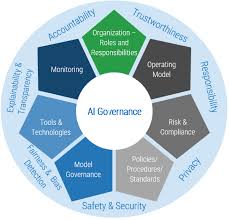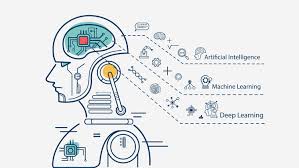As artificial intelligence (AI) continues to transform industries, governments, and society at large, there is a growing demand for mechanisms to ensure these systems are safe, ethical, and aligned with human values. This is where AI governance comes into play. At its core, AI governance refers to the structures, policies, and processes that guide the responsible development and deployment of AI technologies. One of its most critical components is AI accountability—ensuring that AI systems and their outcomes can be understood, traced, and held to standards that prevent harm and promote fairness.
Why AI Accountability Matters
Machine learning systems often operate in black-box environments, where even developers may struggle to explain how a particular decision was made. In high-stakes applications such as healthcare, criminal justice, or financial services, the inability to trace and justify outcomes raises significant ethical and legal concerns. Without clear accountability, there’s a risk of perpetuating biases, enabling discriminatory practices, or even causing unintended harm.
AI accountability demands transparency in how AI models are trained, what data they use, and how decisions are made. It also means assigning responsibility when things go wrong—whether to developers, vendors, or operators. In short, accountability bridges the gap between technical performance and social trust.
The Role of Compliance Frameworks
As regulatory bodies around the world begin to define rules for AI use, compliance frameworks are emerging as essential tools for enforcing AI governance and accountability. These frameworks establish the legal, ethical, and operational standards that AI systems must meet. For example, the European Union’s AI Act categorizes AI systems by risk level and imposes specific obligations based on their potential impact. Similarly, organizations like the IEEE, NIST, and ISO are developing standards focused on AI ethics, transparency, and risk management.
Implementing robust compliance frameworks helps organizations:
Identify and mitigate risks early in the development cycle
Document decisions, model behavior, and data lineage
Ensure alignment with local and international regulations
Demonstrate due diligence to stakeholders and regulators
In practice, this may include tools like model documentation (e.g., datasheets for datasets), audit trails, fairness testing, and explainability techniques.
Building Governance Into AI From the Start
Effective AI governance isn’t a patch applied after a system is built. It must be integrated from the earliest stages of AI design and development. This involves cross-functional collaboration between data scientists, ethicists, legal experts, and business leaders to embed principles such as fairness, accountability, and transparency throughout the AI lifecycle.
Key best practices for building AI accountability include:
Clear Roles and Responsibilities: Define who is accountable for model decisions and performance.
Transparent Design: Use interpretable models when possible, or provide post hoc explanations for complex models.
Continuous Monitoring: Track model behavior in production to detect drift, bias, or unintended consequences.
Stakeholder Engagement: Include diverse perspectives in the design process to uncover blind spots and ensure inclusivity.
Conclusion
As AI technologies become more powerful and widespread, the need for strong AI governance and AI accountability will only intensify. Organizations that adopt proactive strategies—grounded in sound compliance frameworks—will be better equipped to manage risks, earn public trust, and realize the full potential of AI responsibly. The future of AI doesn’t just rely on innovation—it depends on accountability.







